| . |
Thailand Herbal Medicine Companies,
Thai Herbal Medicine Manufacturers are being sought after to
provide natural remedies for a growing number of ailments.
TRADITIONAL THAI HERBAL HEALING
Thailand has a longstanding tradition of herbal medicine that, like many
aspects of Thai culture, derives its origins from ancient India. Thai
herbal medicine has its roots in ancient Indian Ayurvedic practices, and
arrived in Thailand along with Buddhist missionary monks, who were
trained as healers. This medical knowledge was passed on to Thai monks
along with the Buddhist teachings, thus temples became the centers of
learning and healing – and remain so in Thai culture today.
Aside from the Ayurvedic influences, there was an existing tradition of
local folk medicine and herbal lore that involved animism, spirituality
and astrology. Since monks themselves were folk people, some of the folk
medicine practices were absorbed into the temple teachings. A
specialized midwife tradition developed, in which women were trained in
post-natal care using herbal medicine, because the monk hood prohibited
contact with women.
Each village had a traditional healer who practiced using a combination
of herbal knowledge and shamanism. Traditional herbal practice was
combined with elements of spirituality, such as the performance of rites
and rituals when picking certain plants and flowers. Traditional
practitioners believed that herbal healing is based on the healer’s
belief in the power of nature and earth, and the ability to harness the
power of plants and minerals for energy. |
|
|
The practice was kept within
families, with knowledge passed down orally from generation to
generation, thus certain families in some provinces gained fame for
their particular skills.
There were many beliefs governing traditional herbal practice, such as
the regulation of the times and places for collecting herbal
ingredients. For example, it’s known that evening flowers such as
jasmine and ylang ylang are best collected at night, when their powers
are most potent. It’s also known among herbal specialists that the best
plants come from certain locations, due to the varying qualities of
soil. The time and date of picking herbs is also crucial – the full moon
time is best, when the energies of the earth, moon and sun are at the
their most powerful.
Though traditional herbal medicine went out of fashion in Thailand in
the 20th century with the advent of western allopathic medicine, it is
currently enjoying a spectacular revival, thanks to the current
international spa boom and holistic wellness trends that eschew chemical
and surgical solutions in favor of natural remedies. In recent years,
the Thai Ministry of Public Health has added degree courses in
traditional herbal medicine to its curriculum, while traditional
medicine hospitals like Chao Phraya Abhaibhubejhr Hospital in
Prachinburi are thriving in the light of unprecedented public attention
and sales of in-house branded herbal health products.
While Thai massage is the most famed of
the ancient healing traditions, a number of treatments that have become
popularized in modern day Thai spas and are now becoming as familiar to
foreigner visitors as they are to local Thais. The use of heat therapies
combined with herbal ingredients is a distinguishing trait of
traditional Thai healing practices. One of most popular of these is the
Thai herbal steam or sauna, whose healing secret lies in the
ingredients; among them the key ingredients are indigenous Thai herbs
turmeric, prai, lemongrass, camphor and kaffir lime. Aside from
providing an overall health and complexion booster, Thai herbal steam is
one of the most effective methods of weight loss if done consistently
over an extended period of time.
Another ancient Thai healing therapy is the use of prakob, or hot herbal
compresses made of medicinal herbs wrapped in a bundle of cloth,
steamed, and then kneaded on the trouble areas of the body, like tense
shoulders or rheumatic joints. The key to healing lies in the
combination of medicinal herbs and heat.
There’s also a revival in traditional midwife practices, with even a
handful of Bangkok spas offering the painstaking program once practiced
by every new mother in Thailand. Thai midwife practices focus on
post-natal therapies that help detoxify and rebalance after the rigors
of childbirth.
There aren’t any particular therapies during the pregnancy itself,
except guidelines on what foods to avoid that might harm the fetus. For
example, it was folk belief that pregnant mothers should avoid eating
bamboo, drink alcohol or fermented foods after the first trimester,
while herbal soups and especially ivy gourd leaf was believed to be
nourishing for pregnant mothers. During pregnancy, there are certain
massage techniques for the lower back and legs specifically to give
relief to muscle ache from carrying the extra weight.
A post-natal therapy called Yuu Fai, meaning “staying by the fire” in
Thai, is well known to generations of Thai women. The famed treatment
involves ensconcing the new mother in a herbal sauna of excruciating
heat from a charcoal burner containing a blend of herbs that help heal
the stitches, sterilize the childbirth wounds and get the womb back into
shape. For best results, the new mother does the whole program of hot
compresses, massage, herbal steam and herbal sauna daily for a week
immediately after birth. Professional midwives say that continuing the
herbal steam treatment for six months up to two years after the birth
can help rebalance the body and help weight loss.
One heat treatment particular to Thai post-natal care is the Hot Salt
Pot treatment, an ancient technique rarely used today because few people
know the proper technique. Fortunately, the Ministry of Public Health is
attempting to revive this technique by adding it to their traditional
healing curriculum.
Despite its name, it’s not the pot, but the special herbs that produce
the healing effects in this treatment. The key ingredient is a bulb
called Waan Chak Mod Luuk that helps heal the womb. Some of the other
ingredients are prai, turmeric, and naad leaf, though different
practitioners have their own recipes using other herbs.
Thai herbal healing was up till only recent years the domain of simple
country folk, mainly practiced in rural temples and villages. Thankfully
for this rich cultural tradition and for modern day wellness seekers,
current holistic wellness and lifestyle trends have helped revive what
was once the country’s dying herbal heritage, so that now Thai herbal
healing can be found and appreciated in modern day spas and traditional
medicine hospitals, and natural herbal products are sold in shops in
both city and
ROYAL FLORA RATCHAPHRUEK 2006
If you are looking for Herbal Medicine,
Drugs, Pharmaceutical products
of any type we have a full section covering all pharmaceutical products here
Thailand Pharmaceutical Companies, Thai Pharmaceutical Manufacturers
Bangkok Companies is a full service
product sourcing company in Thailand. For All your
herbal medicine needs please email
bangkokcompanies@gmail.com with your requests.
| Herbal
Skin Care |
Herbal Massage |
Herbal Hair Tonic |
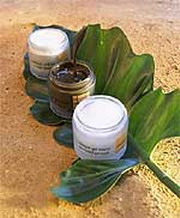 |
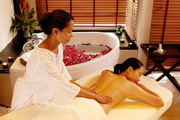 |
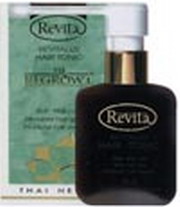 |
| |
|
|
| Herbal
Candles |
Herbal Spa Products |
Herbal Face Mask |
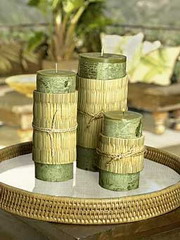 |
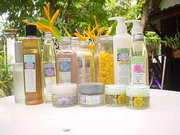 |
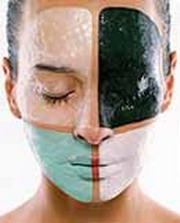 |
| |
|
|
| Herbal
Incense |
Herbal Bags |
Herbs |
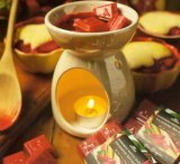 |
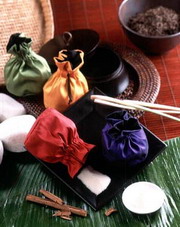 |
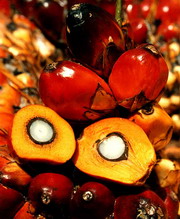 |
| |
|
|
| Herbal
Aphrodisiac |
Herbal Tea |
Herbal Cosmetics |
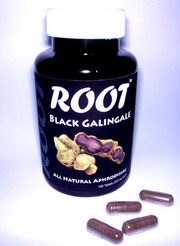 |
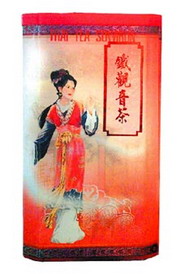 |
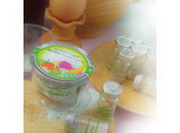 |
|
. |












